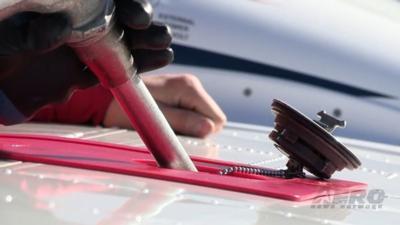Mon, Mar 24, 2025
Advertisement
More News
 NTSB Prelim: Funk B85C
NTSB Prelim: Funk B85C
According To The Witness, Once The Airplane Landed, It Continued To Roll In A Relatively Straight Line Until It Impacted A Tree In His Front Yard On November 4, 2025, about 12:45 e>[...]
 Aero-News: Quote of the Day (11.21.25)
Aero-News: Quote of the Day (11.21.25)
"In the frame-by-frame photos from the surveillance video, the left engine can be seen rotating upward from the wing, and as it detaches from the wing, a fire ignites that engulfs >[...]
 ANN's Daily Aero-Term (11.21.25): Radar Required
ANN's Daily Aero-Term (11.21.25): Radar Required
Radar Required A term displayed on charts and approach plates and included in FDC NOTAMs to alert pilots that segments of either an instrument approach procedure or a route are not>[...]
 Classic Aero-TV: ScaleBirds Seeks P-36 Replica Beta Builders
Classic Aero-TV: ScaleBirds Seeks P-36 Replica Beta Builders
From 2023 (YouTube Edition): It’s a Small World After All… Founded in 2011 by pilot, aircraft designer and builder, and U.S. Air Force veteran Sam Watrous, Uncasville,>[...]
 Airborne 11.21.25: NTSB on UPS Accident, Shutdown Protections, Enstrom Update
Airborne 11.21.25: NTSB on UPS Accident, Shutdown Protections, Enstrom Update
Also: UFC Buys Tecnams, Emirates B777-9 Buy, Allegiant Pickets, F-22 And MQ-20 The NTSB's preliminary report on the UPS Flight 2976 crash has focused on the left engine pylon's sep>[...]
blog comments powered by Disqus





